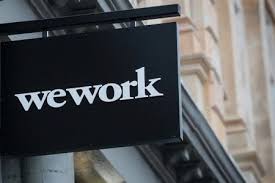Efrat's
Message
:


Happy Thanksgiving to all our colleague, clients and friends!
There are many things to be thankful for this year. We have just marked our 10 year Anniversary this month, which we will commemorate over the coming year with a few planned events and a series of articles looking at the changes in the IP marketplace over the last decade. As I look back to the last year and decade, I am most thankful for the people who have been part of the Foresight journey: our team members, clients, advisors and affiliates. It has been a fun ride!
In today's newsletter, we continue our investigation of Unicorns and their IP positions, and investigate
the WeWork story, in an attempt to answer the question: is WeWork a technology company? Our blog story this month examines another current event - the United States Court of Appeals for the Federal Circuit's opinion in
Arthrex, Inc., v. Smith & Nephew, Inc. on whether the appointment of the Patent Trial and Appeal Board's Administrative Patent Judges violates the U.S. Constitution. We also highlight some stories from our Twitter feed this month, keeping you up to date on everything IP, from trademarks in fashion to patent litigation.
As the year is drawing to a close, I hope we can see many of you in person at the LES Silicon Valley's chapter "IP Year in Review" event on December 11th. See the
Upcoming Events section for more details!
Happy Thanksgiving!
Warmly,
|

In an
article we published in November 2015
, we documented the findings of a study of Unicorns (startups with valuations of over $1 billion) and their patent holdings. In that study, we discovered that over 60% of Unicorns held immaterial patent portfolios (10 assets or less). We have subsequently concluded that these Unicorns are likely to fill the gap in their patent holdings through organic filing and patent acquisitions, as they approach an exit event or as they enter a major new market.
Fast forward to October 2019, and WeWork, a member of our Unicorn "Class of 2015", has been in the news under very unpleasant circumstances. The WeWork planned IPO was called off in October 2019, after questions emerged related to, among other things, the viability of the company's business model following financial and operating disclosures included in
its S-1 filing with the SEC
. This led to a series of events where, eventually, SoftBank acquired a controlling interest in the company
at a valuation of $8 billion
, a fraction of its most recent valuation of $47 billion, while in the process removing Adam Neumann, the company's co-founder and CEO, and buying out his shares.
While WeWork did not engage in any significant patent filing or buying, unlike Uber or some of its other peer Unicorns from the "Class of 2015" study, there is a very interesting IP angle to the WeWork story. Much of the company's marketing communications activities have been dedicated to portraying it as a "technology company." As a matter of fact, the company describes itself in its S-1 filing as follows: "We provide our members with flexible access to beautiful spaces, a culture of inclusivity and the energy of an inspired community, all connected by our extensive technology infrastructure." In the startup world, association with technology leads to higher valuation multiples and considerable interest from investors (particularly if you are a player in a "low-tech" industry such as commercial real estate). In our most recent article, we set out to explore whether WeWork is truly a technology company, what types of IP assets it holds, and how these assets have played a role in its valuation before and after its failed attempt at an IPO.
|
Foresight Blog Highlights
|
IP News Digest

Are brands at a loss for words? That is a question that has been permeating media and legal circles, alike, over the past couple of years, in particular, as a result of the continuing rise in the number of trademark registrations being granted every year by trademark bodies across the globe.
Cupertino tech giant Apple is suing SoftBank owned Fortress Investment Group for patent stockpiling. The company is joined by Intel Corporation in a lawsuit filed on Wednesday. Apple claims that Fortress and its subsidiaries are responsible for hoarding patents simply for the purpose of suing tech firms. Intel, for its part, had filed an earlier lawsuit with similar claims against Fortress, but it has now withdrawn the suit and joined forces with Apple.
Drug manufacturers are often extorted by patent trolls and trial lawyers, but now they also have to worry about frivolous infringement lawsuits by the Trump Administration. The Justice Department last week sued Gilead Sciences for violating four government patents related to a "pre-exposure
prophylaxis
" (PrEP) drug regimen to prevent HIV.
Universities upset at businesses that rip off their patented technologies often face a tough decision about whether to spend money on litigation that could be going to fund education.
Fortunately, schools are finding there are other options.
The U.S. Patent and Trademark Office argues that Booking.com is a generic mark that cannot be registered with the PTO, because it would discourage other booking services from using "booking" as part of their domain names.
|
Upcoming Events 
When: March 15-18, 2020
Where: Dallas, Texas
|
|